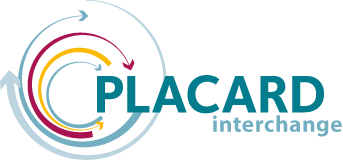From 16–20 May, we took part in the Understanding Risk Forum 2016, the fourth global conference on disaster risk identification organised by the Global Facility for Disaster Reduction and Recovery (GFDRR). The event brought together over 650 participants from 100 countries and more than 350 organisations in the city of Venice. PLACARD collaborated with the ENHANCE project in organising a workshop and a technical session.
The workshop, Learning across communities of practice: risk assessment for disaster risk reduction and climate risk management focused on the critical role of empirical and evidence-based risk analysis and assessment for disaster risk reduction (DRR) and climate change adaptation (CCA). The workshop was organised around three thematic sessions: the first two aimed to review and compare quantitative and qualitative methods and tools for risk and impact assessment in the environmental and economic disciplines, while the third included a fruitful and insightful discussion on the opportunities and constraints that emerge when moving from risk assessment to the implementation of policies.
The workshop’s outcomes underlined that a better understanding of natural hazard risks, the ensuing economic losses and the perception of risk is needed, if we aim to prevent macroeconomic imbalances, improve the coordination of the responses to shocks and crises, facilitate the post-disaster recovery, and enhance the understanding of natural impairments which hold up economic, social and territorial cohesion. Furthermore, discussions highlighted that there is a continuous increase in the demand for multi-scale integrated and operational climate risk assessments to inform climate change adaptation strategies, identify hotspot regions and sectors, and monitor and evaluate measures taken in the past using interdisciplinary approaches (including methods, tools, indicators and decision criteria). In addition, the essential role of local governments’ commitment, strong stakeholder involvement and co-production of knowledge in reducing disaster risks and their further implications (e.g. on cultural heritage) was also emphasised. While encouraging dialogue across different communities, the workshop provided a unique opportunity for exploring the gaps and fragmentation challenges in the current CCA and DRR research, policymaking and practice.
The technical session on Friday, entitled Climate extremes and economic derail, took a deeper look into the area of disaster risk modelling and the impacts of extreme weather and climate related events on regional and national economies. The session explored the financial and economic impacts of natural hazard risks, compared different modelling efforts made for the assessment of the economic impacts of water-related hazards, and examined the importance of accounting and predicting the effects of weather and climate extremes for informing climate adaptation and disaster risk reduction policies.
Discussion highlighted the role of the insurance sector in managing the risk of weather and climate extremes, and explored the ways through which economic instruments can support a successful policy mix. Further, the importance of learning through sharing experience, as well as the importance of accounting the characteristics of the individual contexts, which ultimately determine the selection of the “best possible” solution were underlined.
Overall, it was agreed that risk mis-management leads not only to losses, but also to ‘missed’ opportunities. This results largely from the fact that policymakers tend to underinvest in risk management projects because the costs of such investments are visible and immediate, whereas their benefits and distribution are often unclear, uncertain and distant. Assessing economic impacts and climate adaptation may bring about benefits for policymaking. Nevertheless, it was stressed that the limitations of existing tools and knowledge and their true potential to support policy actors should be fully taken into account while making relevant decisions.
Understanding Risk Forum 2016:
- Workshop agenda – Learning across communities of practice: risk assessment for disaster risk reduction and climate risk management (pdf)
- Technical session agenda – Climate extremes and economic derail (pdf)
For further information, please contact:
- Jaroslav Mysiak: jaroslav.mysiak@feem.it
- Elisa Calliari: elisa.calliari@feem.it
- Eleni Karali: eleni.karali@cmcc.it

Photos: Understanding Risk forum workshop © Eleni Karali, CMCC


